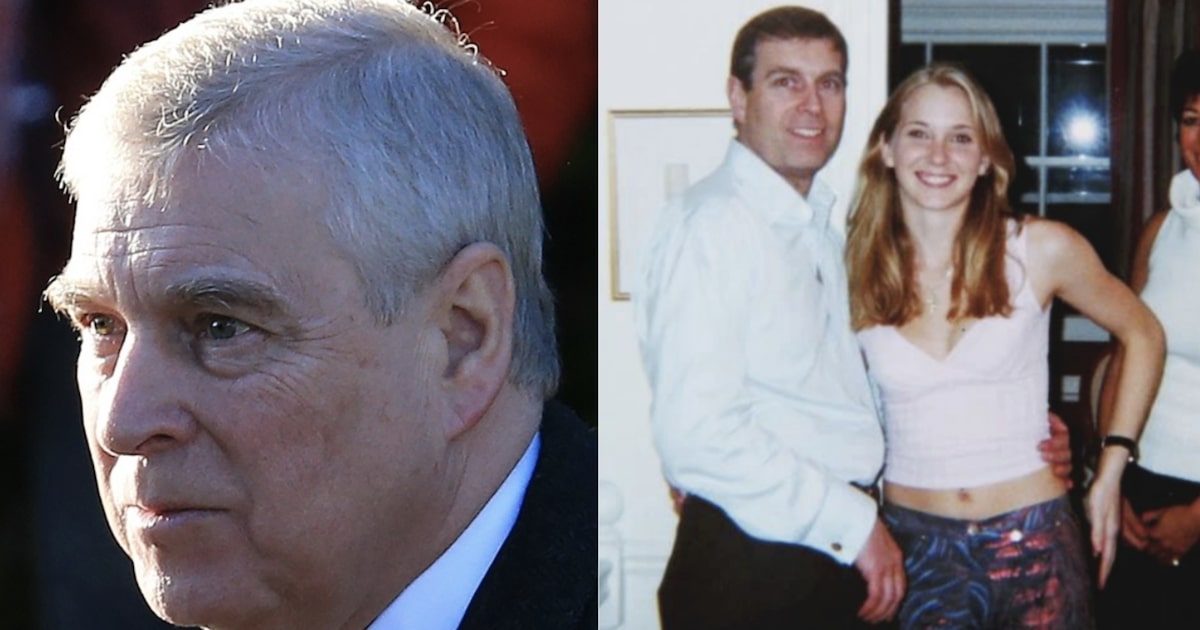
Prince Andrew and Virginia Giuffre
Prince Andrew on Wednesday formally denied most of the allegations leveled against him in a sex abuse lawsuit and asked for a trial by jury.
As his accuser Virginia Giuffre already demanded a jury trial, the prince’s request allows him to preserve the status quo should she decide to try her case before the judge. Andrew lost his motion to dismiss Giuffre’s lawsuit earlier this month, and he was stripped of his military titles the next day by Buckingham Palace.
Filed in federal court in Manhattan, the prince’s 11-page answer to a Giuffre’s complaint lays out in broad strokes responses to every paragraph of the complaint filed against him last August.
“A Strange Answer”
In one notable answer, the prince balked at the photograph Giuffre included in her complaint appearing to show her with Andrew in the London home of Jeffrey Epstein’s now-convicted accomplice Ghislaine Maxwell.
Giuffre claims that Maxwell’s home was one of three places the Duke of York allegedly sexually assaulted her. According to her complaint, the other two were Epstein’s New York townhouse and private isle in the U.S. Virgin Islands.
Though the prince once told BBC Newsnight that the infamous photograph of him with his arm around Giuffre’s waist may have been doctored, Andrew now says he “lacks sufficient information to admit or deny the allegation that there exists photographic evidence of his alleged meeting with Giuffre.”
Former federal prosecutor Mitchell Epner, who previously handled sex trafficking cases in the District of New Jersey, told Law&Crime in a phone interview that the prince’s statement does not amount to a denial of the image’s authenticity.
“He’s also not admitting it’s a fair and accurate photograph,” noted Epner, now of counsel with the firm Rottenberg Lipman Rich PC. “He’s saying ‘I don’t know if it’s a fair and accurate photograph because I don’t have information sufficient.’ That’s a strange answer for a photograph that you’re depicted in.”
At least 41 times, Andrew said he denies Giuffre’s allegations, including those that he sexually abused her, that Epstein lent her out to him for “sexual purposes,” and allegations which characterize him as a close friend to Maxwell. He also disputes that the U.S. federal court has jurisdiction over him.
“Unclean Hands”
In addition, the royal asserted 11 affirmative defenses, some of which rehash technical grounds that he previously invoked to try to dismiss the case. Andrew argues that Giuffre is actually a resident of Australia who exaggerated her ties to the United States in order to claim jurisdiction. His attorney Andrew Brettler already signaled plans to depose Giuffre about where she lives.
Other defenses question the substance of Giuffre’s allegations, including the grounds of “consent” and “unclean hands.” Giuffre alleges that Andrew sexually assaulted her three times, without consent.
While still denying sexual contact with the then-17-year-old, Andrew claims that a defense of consent would scuttle Giuffre.
“Assuming, without admitting, that Giuffre has suffered any injury or damage alleged in the complaint, Giuffre’s claims are barred by the doctrine of consent,” the filing states.
Epner, the former sex trafficking prosecutor, found that defense puzzling.
“Consent is a complete loser of an argument, and here’s why: The complaint alleges that she was raped,” he noted. “Raped, by definition, means a lack of consent.”
Legally, Epner said that an affirmative defense is one that would be asserted even if the allegations in the Giuffre complaint were assumed to be true.
Another notable defense asserted in the complaint was “unclean hands,” an apparent reference to Giuffre’s acknowledged role in introducing other girls to Epstein.
“It is a striking feature of this case that while lurid allegations are made against Prince Andrew by Giuffre, the only party to this claim whose conduct has involved the willful recruitment and trafficking of young girls for sexual abuse is Giuffre herself, including while she was an adult,” the prince’s attorney wrote in a filing last October.
Authorities have described Epstein’s operation as a Pyramid scheme of sexual abuse, where a young girls would be hired to give Epstein so-called “massages” that escalated to sexual assault and then paid to recruit more victims.
Epner interpreted this defense as a bid to draw Giuffre’s legal team to the bargaining table.
According to his analysis, the possible gambit here would be that “the threat of that information being part of the public trial will dissuade her from an appetite to continue with the case or settle on more favorable terms.”
Read the prince’s answer to Giuffre’s complaint, below:
[Photos: LINDSEY PARNABY/AFP via Getty Images (left); Virginia Giuffre’s lawsuit (right)]